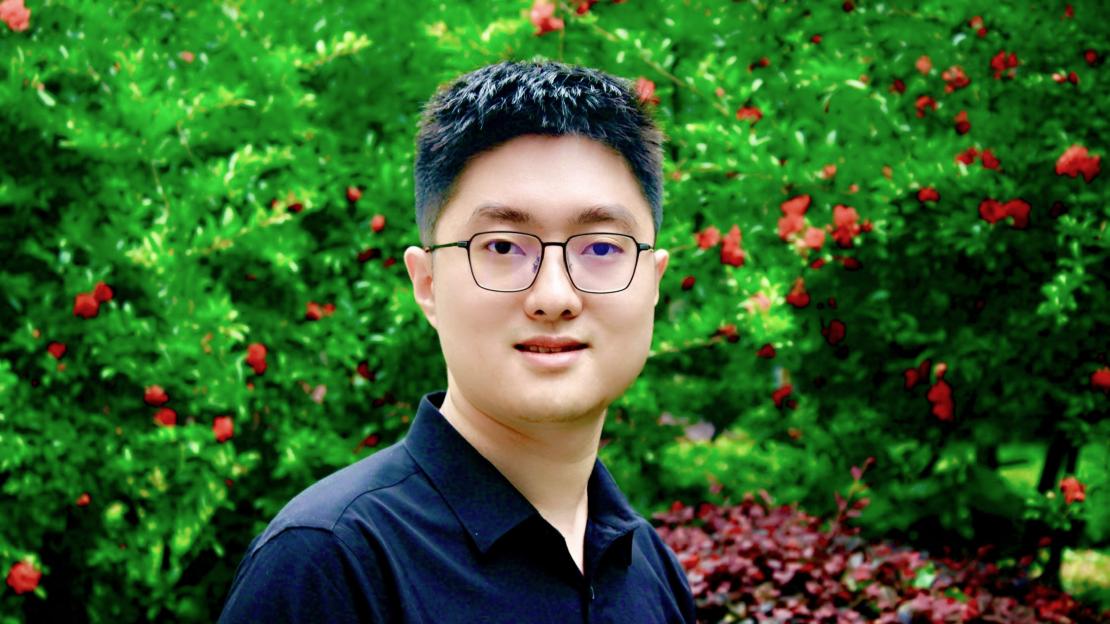Zehui Yin has a secret to achieving his top grades. He regularly finished assignments early, but didn’t submit them right away.
Instead, Yin habitually used his extra time to go to his professors’ office hours and get their feedback on his work.
“That’s where a lot of my grades come from, I think. I don’t procrastinate,” he says. “Time management changes a lot when you go to university compared to high school. You have tons of freedom.”
Yin would then review and revise, and, with time to spare, could go back to office hours again if needed. His marks earned him what U of T considers one of the most prestigious academic honours, the Governor General’s Silver Medal Award.
Yin is a researcher investigating transit, which may seem odd for someone who majored in economics for management studies, a program that emphasizes economic theories and policies. Yet he’s applying the math and statistical analysis often used to explain market forces to understand why people choose to drive, take public transit or use other travel methods like biking.
“We’re borrowing a lot of lessons from economics that fill in our human geography and urban planning research,” he says. “It’s really helping because I know how to run those statistical models and how to interpret the results.”
While initially in the social sciences stream, Yin tailored his degree as courses grabbed his interest, adding minors in geographic information science and applied statistics. A geography class prompted him to connect with Professor Steven Farber in the department of human geography and soon Yin was a research assistant with the Suburban Mobilities Cluster, one of U of T Scarborough’s research programs and networks.
Time management changes a lot when you go to university compared to high school. You have tons of freedom
“Transportation is a lot of fields combined,” says Yin, who also received awards for having the highest grades in several courses, and his research has twice been funded by the U of T Excellence Award.
“I think the main strength of the cluster is the interdisciplinary structure, we have experts from management, human geography, sociology, political science and other departments.”
In less than two years, Yin was involved in seven research projects, among them studies into ways Metrolinx can better serve U of T Scarborough students who use financial aid, and another on how the cycling landscape has changed in Toronto since 1999.
He delved deep into Toronto’s bike scene during his courses, with projects that uncovered how city bike lanes don’t align with some of the most popular cycling routes; inequities in Toronto’s city-wide bike sharing program that is significantly more accessible to white, Chinese, and low-income populations, and less available to Black people and women; and that bike thefts decline within 500 metres of a police facility.
Recently, he co-authored two papers on what some academics call the biggest deciding factor in whether people choose public transit: the so-called first-mile/last-mile problem. Essentially, people often decide the way they’ll commute based on their distance to a transit stop. Many are deterred by a long walk to the subway, or the awkwardness of getting a bike on a bus. Yin’s research is looking at a hotly debated potential solution — dockless micromobility, or the kinds of bikes, e-bikes and e-scooters that can be picked up, rented and left anywhere.
“Sharing is a really good framework to overcome the transportation barrier to vulnerable populations, owning a car is quite costly, for example, and bike share systems can reduce the cost for individuals if bikes are vandalized or stolen,” Yin says.
In the fall, Yin will begin pursuing his PhD in geography and he intends to continue researching how commuting can improve in the Greater Toronto and Hamilton Area.
“Transit is a really active research area,” he says. “I do have some dreams, I hope I can be a professor and keep doing research projects.”
